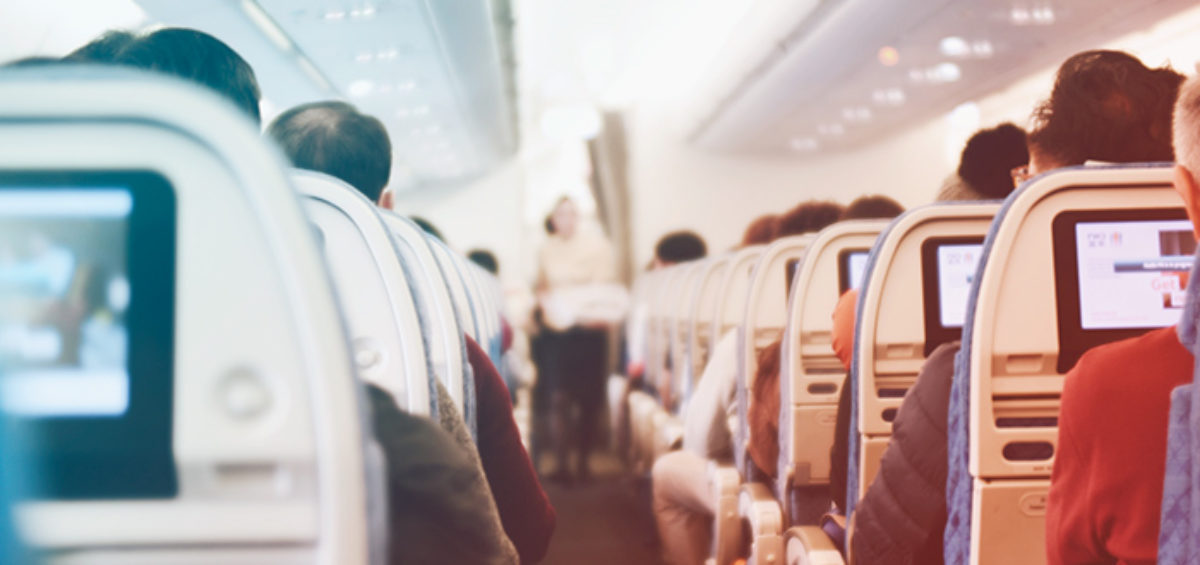Airlines aren’t necessarily known for customer service.
For most of the 20th century, air travel evoked images of finely dressed businesspeople and vacationers enjoying plentiful legroom, quality in-flight food and drink, and cheerful stewards going the extra mile.
But, today, air travel makes most travelers think of different things, like cramped accommodations, a near absence of food and drink, as well as surly attendants who seem bothered by an illuminated call button.
Which is strange because airlines collect and analyze more customer service data than perhaps any other industry. How can it be that airline customer satisfaction is falling as the airlines themselves have more and more customer service data to work with?
Here’s a look at this customer service conundrum and what it might mean for business travel now and in the future.
The Biggest Mistake: Focusing on the Few Over the Many
A recent American Marketing Association (AMA) article identifies a potential problem that airlines experience in translating data into good customer service. And that problem is focusing on the needs of the few over the needs of the many.
The customer service data that airlines have is used to deliver outstanding service to the higher status frequent fliers and to business- and first-class passengers. And the travel experience is actually becoming a better one for these frequent and premium passengers.
Delta, for example, has invested in new SkyPro technology, which allows its flight attendants to access tracked data through their standard-issue Nokia Lumia devices. Access to this data means that attendants know almost everything there is to know about frequent and premium passengers, which allows them to deliver a semi-customized experience.
Similarly, American Airlines has invested in its iSolve system, which is an app flight attendants can access through their standard-issue Samsung Galaxy Note devices. When an attendant encounters a customer service issue, he or she can provide frequent flier miles or travel vouchers in real-time to appease dissatisfied customers.
There’s a hard truth in the airline industry, though: Frequent fliers and premium passengers are more profitable than those who fly rarely or who buy the cheapest fares. And it’s the more profitable frequent fliers and premium passengers who are likely to enjoy the benefits of the information attendants now hold in their hands during flights. In short, airlines will continue providing outstanding service to their most profitable customers at the expense of their least profitable customers.
Another example: When flights are overbooked, airlines typically boot the lowest-paying passengers first. They also never kick off passengers with “status,” unless everyone on the plane has status — and then they start with the lowest-paying status customer.
And that’s how you get a company like United Airlines losing a huge amount of its brand value after a passenger was violently removed from an overbooked flight. And there have been other recent airline issues that have targeted low-paying, less frequent passengers, including the introduction of basic economy classes and the ever-shrinking airline seat.
What Does This Mean for Business Travelers?
Airlines rely heavily on business travelers for profitability. While business travelers make up only about 12% of all travelers, they represent about 75% of airline profits. In fact, business travelers are about twice as profitable as non-business fliers.
And those statistics make it clear why airlines leverage customer service data to make these important customers as happy as possible. But, going back to the American Marketing Association article for a moment, is a focus on only frequent and premium fliers the best way to create ideal customer experience?
The article suggests that all airlines passengers are only as happy as the least happy airline passenger. Imagine sitting in first class as an airline violently removes a passenger, or picture waiting at the gate as attendants try to cajole passengers into taking later flights in exchange for vouchers and other perks. Even if you’re the most important customer on the flight, these incidents affect your experience. Over time, these incidents might motivate you to complain about the way others are treated and, ultimately, to explore alternatives.
As a business traveler, you’re often insulated from the poor customer experience that others face. But not always. And it seems that airlines would do well to begin using their wealth of data to serve the many — which would create better experiences for even their few frequent and premium customers.
JTB Business Travel: Focused on Your Experience
While airlines might not focus on the experience of all their passengers, JTB Business Travel always focuses on the experience of each business client. As a comprehensive travel management company (TMC), we help companies make the most of their investment in business travel, while also supporting individual travelers to ensure they enjoy comfortable, efficient itineraries. Behind everything we do is a common sense approach to business travel.
Contact us today to learn more about our services as a corporate travel agency.














Leave a Comment